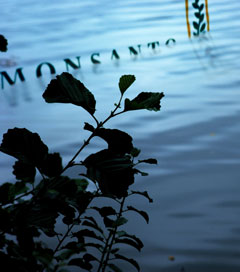Honest, paywall-free news is rare. Please support our boldly independent journalism with a donation of any size.
In a major victory for public health and what will hopefully lead to other nations taking action, a French court decided today that GMO crops monster Monsanto is guilty of chemically poisoning a French farmer. The grain grower, Paul Francois, says he developed neurological problems such as memory loss and headaches after being exposed to Monsanto’s Lasso weedkiller back in 2004. The monumental case paves the way for legal action against Monsanto’s Roundup and other harmful herbicides and pesticides made by other manufacturers.
In a ruling given by a court in Lyon (southeast France), Francois says that Monsanto failed to provide proper warnings on the product label. The court ordered an expert opinion to determine the sum of the damages, and to verify the link between Lasso and the reported illnesses. The case is extremely important, as previous legal action taken against Monsanto by farmers has failed due to the challenge of properly linking pesticide exposure with the experienced side effects.
When contacted by Reuters, Monsanto’s lawyers declined to comment.
Monsanto’s Deadly Concoctions
Farmer Paul Francois was not alone in his quest to hold Monsanto accountable for their actions. He and other farmers affected by Monsanto’s deadly concoctions actually founded an association last year to make the case that their health problems were a result of Monsanto’s Lasso and other ‘crop protection’ products. Their claims were also met by many other farmers. Since 1996, the agricultural branch of the French social security system has gathered about 200 alerts per year regarding sickness related to pesticides. However only 47 cases were even recognized in the past 10 years.
Francois, whose life was damaged by Monsanto’s products, has now set the powerful precedent in the defense of farmers.
“I am alive today, but part of the farming population is going to be sacrificed and is going to die because of this,” Francois, 47, told Reuters.
It is also important to note that Monsanto’s Lasso pesticide was actually banned in France back in 2007 following a European Union directive that came after the ban of the product in other nations.
Press freedom is under attack
As Trump cracks down on political speech, independent media is increasingly necessary.
Truthout produces reporting you won’t see in the mainstream: journalism from the frontlines of global conflict, interviews with grassroots movement leaders, high-quality legal analysis and more.
Our work is possible thanks to reader support. Help Truthout catalyze change and social justice — make a tax-deductible monthly or one-time donation today.
